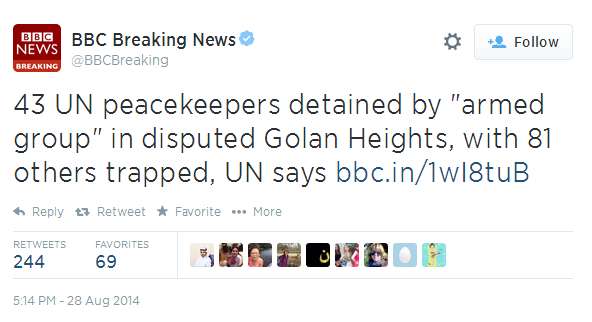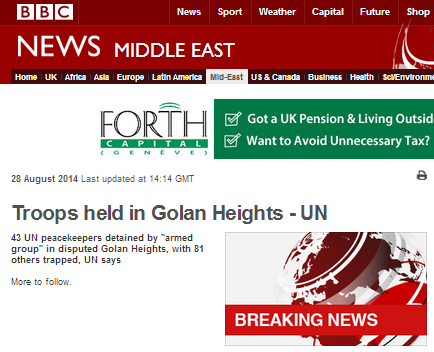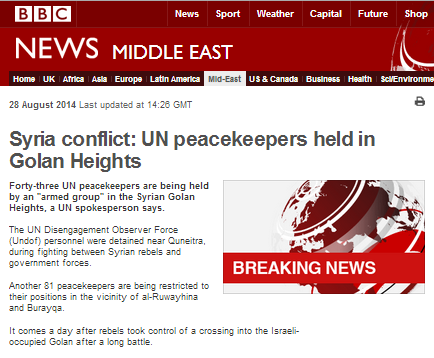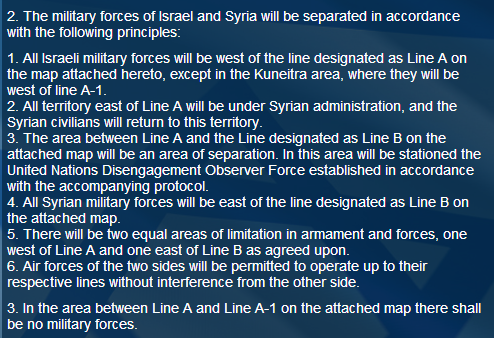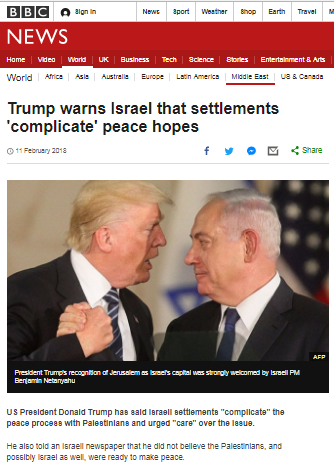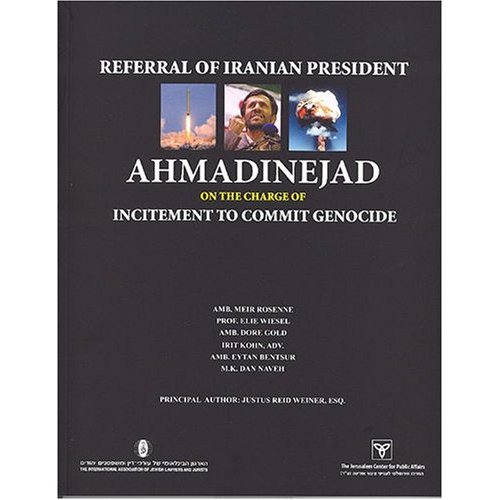The BBC News website’s coverage of the recent incidents involving two different groups of UNDOF personnel began on August 28th with some problematic geography.
Just over half an hour later, someone at BBC News apparently realised that the Syrian opposition group which captured UNDOF soldiers was unlikely to be located in the part of the Golan Heights the BBC terms “disputed” and that hence the automatic reflex adjective was inaccurate.
The title of BBC’s article on the topic was amended to read “Syria conflict: UN peacekeepers held in Golan Heights” and changes to that report – originally date-stamped August 28th – can be seen here. The article states:
“It comes a day after rebels took control of a crossing into the Israeli-occupied Golan after a long battle.
Activists said the rebels included members of the al-Nusra Front, al-Qaeda’s affiliate in Syria.
During the fighting, an Israeli soldier and an Israeli civilian were wounded by stray bullets. The Israeli military said it had responded with artillery fire at two Syrian army positions.”
In fact, whilst the IDF officer was injured by a gunshot wound to the chest, the civilian from Kibbutz Ein Zivan was wounded by mortar fire. Those events on August 27th had previously been briefly and partially mentioned at the end of a report titled “Syria conflict: Islamic State ‘committed war crimes’“.
“In a separate development, Syrian rebel groups including the al-Qaeda affiliated Nusra Front have taken control of a crossing between Syria and the Israeli-occupied Golan Heights, according to a UK-based monitoring group.
“The Nusra Front and other rebel groups took the Quneitra crossing, and heavy fighting with the Syrian army is continuing in the surrounding area,” said Rami Abdel Rahman, the director of the Syrian Observatory for Human Rights.
The Israel Defence Forces said one of its officers “was moderately injured as a result of errant fire from Syria”.
“In response, we struck 2 Syrian military positions in the Golan Heights,” an IDF spokesperson [sic]”.
The BBC News website’s second report on the UNDOF story appeared on August 29th under the title “Golan Heights: UN calls for release of Fijian peacekeepers“. On August 30th a third report appeared titled “Philippine troops ‘attacked in Syria’s Golan Heights’” and on August 31st a fourth report was published under the title “Philippine peacekeepers rescued in Syria’s Golan Heights“.
The first two articles both include the following statements taken in part from the BBC’s problematic profile of the Golan Heights which fails to make any mention of why Israel captured the area and its use by Syria prior to June 1967 as a position from which to attack Israeli civilian communities below.
“The Golan Heights, a rocky plateau in south-western Syria, has a political and strategic significance that belies its size.
Israel seized the region in the closing stages of the 1967 Six-Day War, and thwarted a Syrian attempt to retake it in 1973.
Both countries signed an armistice in 1974, after which Undof was put in place to monitor the demilitarised zone.
It has 1,224 lightly-armed military personnel from Fiji, India, Ireland, Nepal, the Netherlands and the Philippines.”
The latter two reports use the following formulation:
“Israel seized most of the Golan Heights, a strategic plateau in south-western Syria, during the 1967 Six-Day War.
The two countries signed an armistice in 1974, after which Undof was put in place to monitor the demilitarised zone.
It has 1,224 lightly-armed military personnel from Fiji, India, Ireland, Nepal, the Netherlands and the Philippines.”
UNDOF’s actual mandate includes of course rather more than the BBC’s simplistic portrayal reveals and includes ensuring that both parties to the 1974 Israel-Syria Separation of Forces Agreement keep its terms.
In relation to clause 5 above:
“The UNDOF shall carry out inspections under the agreement, and report there on to the parties, on a regular basis, not less often that once every fifteen days, and, in addition, when requested by either party.”
Since the beginning of the civil war in Syria in 2011, conditions on the ground have changed and the demilitarized zone has long since ceased to live up to its name. UNDOF personnel are known to have ceased inspections in the area of limitation in armament and forces on the Syrian side. On its website, UNDOF itself divides its activity into two phases: 1974 to 2012 and 2013 to the present because of the change in conditions.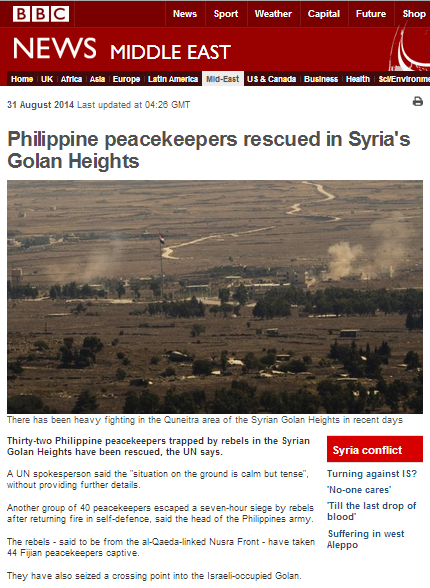
“A considerable escalation of the conflict in Syria in 2013 has affected the UNDOF area of operations significantly. The military operations carried out by the Syrian Arab armed forces and the armed members of the opposition in the area of separation have adversely affected the efforts of the Force to effectively carry out the mandated tasks. They have also significantly raised the potential of escalating tensions between Israel and Syria and jeopardizing the decades-long ceasefire between the two countries and the stability of the whole region. […]
By its resolution 2108 of 27 June 2013, the Security Council stressed the obligation of both Israel and the Syrian Arab Republic to scrupulously observe the 1974 Disengagement of Forces Agreement and abide by its terms. Underscoring that there should be no military forces in the area of separation, it also called on all parties to the Syrian domestic conflict to cease military actions in the UNDOF area of operation.”
Beyond moves such as the above resolution, the UN Security Council has done nothing to bring about the restoration of the designated status of the demilitarized zone which its UNDOF forces failed to keep free of military activity in accordance with their mandate. With frequent bouts of fighting between Syrian government forces and opposition groups taking place in that area often resulting in spillover fire into Israel and with tensions along the border rising as a result, UNDOF’s failure to meet its purpose is clearly an issue of significance about which BBC audiences need to be informed if they are to be able to reach informed opinions on current and future events and to understand Israeli reactions to them. That information was not provided in any of these four articles, which instead use template wording which has already been irrelevant for two years.

